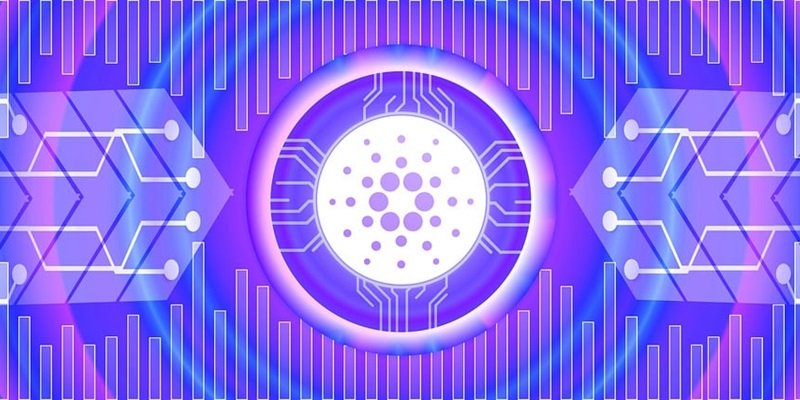Cardano is set to implement the Chang hard fork upgrade, a significant milestone on its journey toward full decentralization. The core aim of this transition is to remove IOHK, the firm responsible for Cardano’s development, from direct management duties and to empower ADA holders with an active role in the network’s evolution. This shift is particularly timely, given the competitive advancements being made by other blockchain platforms in the realm of decentralized governance.
Phases of Implementation
Interim Constitutional Committee
The Chang hard fork’s roadmap initiates with the creation of the Interim Constitutional Committee (ICC), which will spearhead governance actions aligned with an interim version of the Cardano constitution. This committee is composed of representatives from the Cardano Foundation, IOG, EMURGO, and Intersect, along with three community-elected members. These members are tasked with ensuring that all governance actions taken during this phase comply with the provisional constitution. This initial phase sets the foundation for a more inclusive governance model by gradually shifting decision-making power from IOHK to the community and other stakeholders.
Intersect, a member-based organization within the Cardano ecosystem, will release this interim version of the Cardano constitution. This document will serve as a guiding framework for the ICC and will outline the intended goals and operational guidelines for further decentralizing the blockchain. The release of the interim constitution will foster a sense of stability and predictability, crucial for encouraging broader community participation in governance. With a diverse group of stakeholders and community-elected members on the ICC, Cardano ensures that a balanced and representative governance model begins to take shape.
Delegated Representatives (dReps)
In the second phase of the Chang hard fork’s implementation, Cardano plans to introduce delegated representatives known as dReps. These dReps will play a pivotal role in representing the interests of ADA holders as the blockchain takes concrete steps toward full decentralization. This phase will mark the expansion of the Constitutional Committee beyond its initial seven members, gradually transferring comprehensive control over Cardano’s development to the broader community. The establishment of dReps is a testament to Cardano’s commitment to creating a more participatory and democratic platform.
The transition to dReps is a critical step as it allows ADA holders to have their voices heard through elected representatives, ensuring a more inclusive decision-making process. These delegated representatives will be entrusted with the responsibility of voting on key governance issues, making them central figures in the blockchain’s future development. The expansion of the Constitutional Committee by incorporating more community members will enhance the platform’s legitimacy and accountability. This phase aims to foster a stronger sense of community ownership and responsibility, aligning with the core principles of decentralized governance.
Stake Pool Operators and Market Reactions
Activation of Node 9.1.0
For the Chang hard fork to be officially activated, it is a prerequisite that 70% of Stake Pool Operators (SPOs) upgrade to Node 9.1.0. This technical requirement has already been met, marking a significant milestone in the hard fork’s implementation journey. The timely achievement of this milestone by the SPOs reflects the Cardano community’s readiness and commitment to embracing decentralized governance. With this critical step completed, the Cardano ecosystem is now poised to move forward with the next phases of its ambitious roadmap.
The upgrade to Node 9.1.0 by the majority of SPOs showcases the collaborative effort within the Cardano community and its alignment with the larger goals set forth by the Chang hard fork. As the blockchain inches closer to full decentralization, the active participation of SPOs emphasizes the decentralized ethos at the heart of Cardano. This accomplishment also serves as a confidence booster for the community, signaling that the foundational infrastructure is robust enough to support the forthcoming changes associated with this significant transition.
Market Dynamics and ADA Performance
In parallel with these pivotal governance changes, Cardano’s native token ADA has responded with notable market activity. ADA has experienced a 2.9% price increase, rising to $0.3426, even as its trading volume witnessed a 1.5% decline. This market behavior underscores investor interest and positive sentiment surrounding the Chang hard fork and the broader prospects for Cardano’s future. Historical data further suggest potential bullish behavior, given the recent 31% surge in ADA’s trading volume, highlighting renewed investor engagement.
The nuanced market reactions illustrate the complex dynamics at play as Cardano undertakes this transformative journey toward decentralization. While the price increase in ADA reflects optimism and confidence in Cardano’s roadmap, the concurrent decline in trading volume indicates a cautious yet optimistic sentiment among investors. This blend of market reactions presents an intriguing picture of the evolving investor landscape, as stakeholders keenly monitor Cardano’s progress in real-time. The community remains vigilant and anticipatory, watching closely as Cardano advances through the remaining phases of the Chang hard fork.
Conclusion
Cardano is poised to undertake the Chang hard fork upgrade, marking a crucial step towards achieving full decentralization. This pivotal upgrade aims to shift control from IOHK, the company that has spearheaded Cardano’s development, to the community of ADA holders. Essentially, it seeks to eliminate IOHK’s direct oversight, handing the reins to ADA users who are expected to play a more active role in the network’s governance and development. This transition comes at a crucial time, as Cardano faces stiff competition from other blockchain platforms that are also making significant strides in decentralized governance. The move is seen as a way to keep Cardano in step with, or even ahead of, its rivals, ensuring that it remains a leader in the blockchain space. By involving the ADA community more intimately in decision-making processes, Cardano aims to foster a more robust and democratic ecosystem, thereby reinforcing its commitment to decentralization. This strategy highlights the dynamic and competitive nature of the blockchain landscape and underscores Cardano’s drive to innovate continually.

